A Long Pasta Lunch With the Cashmere King of Pasadena
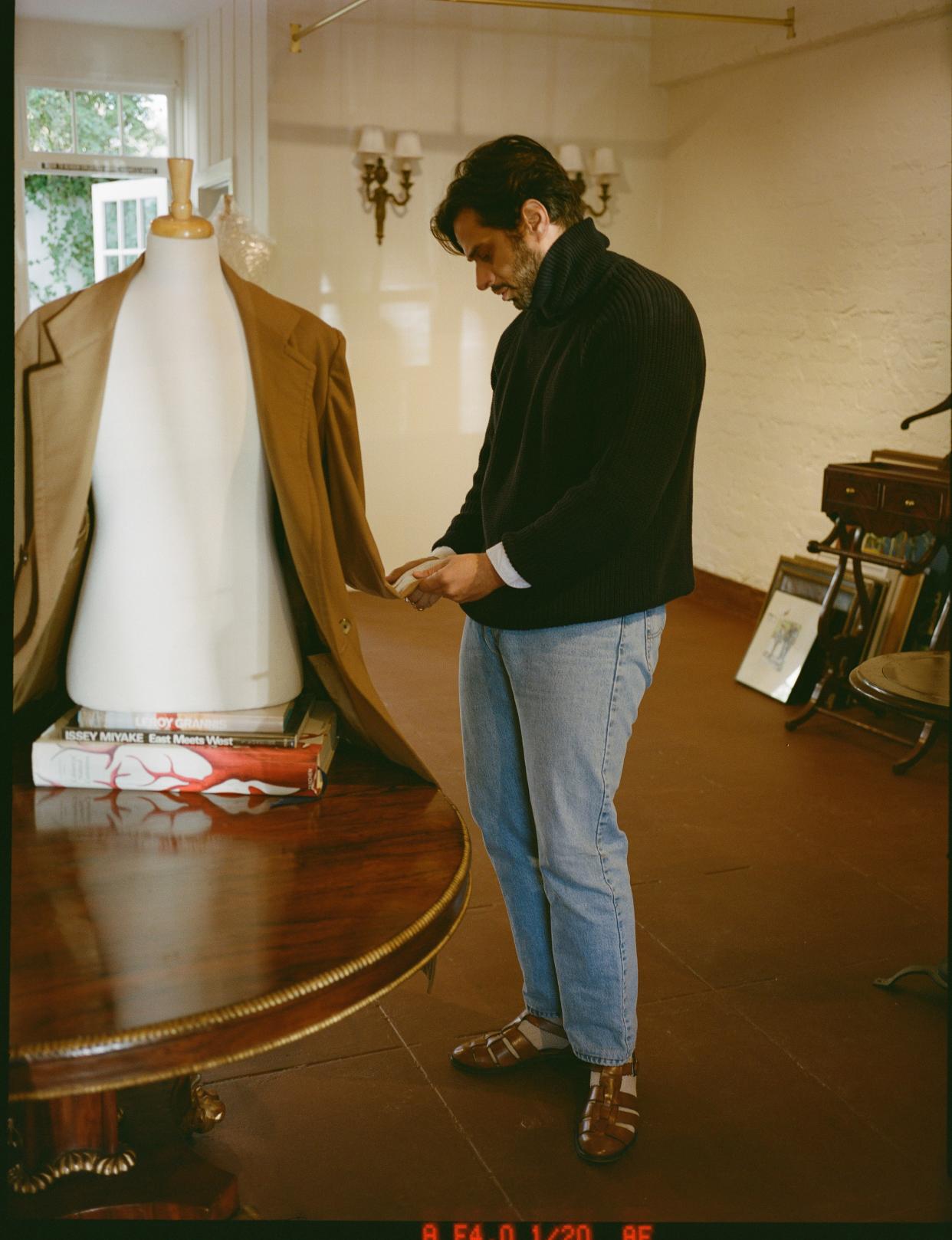
Justin Chung / Courtesy of Ghiaia Cashmere
I’ve only known Davide Baroncini for a few minutes, but already he’s poured me an espresso, lit for me a stubby Toscano Italian cigar, and draped lovingly over my shoulders a chunky navy cardigan of his own design.
It’s a warm spring afternoon in relatively sleepy Pasadena, clear on the other side of town from LA’s best-known menswear shops, and we’re at what is, for now, the storefront for his brand, Ghiaia Cashmere: a shoebox in an old-fashioned shopping arcade. The space, all 340 square feet of it, is packed to the ceiling with Baroncini’s clothing—primarily sweaters, plus shirts and pants and one extremely handsome pair of fisherman’s sandals. It’s also carefully art-directed, jammed to the gills with hard-wearing, history-rich knickknacks and artifacts and images: coils of nautical rope, ceramic ashtrays, photos of cars and sailboats.
Being good at Instagram is more or less compulsory for fashion brands in 2023, and Baroncini cannily populates the Ghiaia account with tons of aspirational images (motorcycle racers, frogmen, Aristotle Onassis in sunglasses) alongside scenes from his own aspirational life. But he also participates in the rich (albeit too rare) fashion-world tradition of world-building. Indeed, the fun thing about the Ghiaia shop is the way it satisfyingly brings the two-dimensional pleasures of social media to life. It’s like if you turned a moodboard into a clubhouse, and started pulling shots of espresso.
Baroncini started Ghiaia in 2019 with a small selection of sweaters, selling primarily wholesale and working from his kitchen table. But in 2020, after he and his wife, the designer and influencer Pia Baroncini, learned she was pregnant, he went looking for office space. The right spot happened to be in this little arcade—and happened to be attached to a little storefront Baroncini thought might work for his brand. “I put together the store, I didn't even know how. I don't want to sound too dramatic, but I didn't know a lot of things. A lot of things,” he says, laughing, in his accented English. “I painted, I moved the furniture in—little room, again, not too hard to put it together.” He opened the doors in May 2021. And then a funny thing happened: in the two months that followed, he sold as many sweaters and shirts and sandals out of the store as he had the entire year before through his website. “So I'm not a genius, but I'm not an idiot either.”
We’ve moved out to the parking lot to smoke our cigars. I’m beginning to see the logic at play here—in this funny little shop run by an inordinately charming dude in a sleepy, ritzy suburb of LA. Ghiaia’s clothes are not cheap (cotton sweaters start at over $500), and while they’re handsome and well-made, they’re not exactly showy. And, sure, Pasadena isn’t exactly a menswear capital, but it’s my sense that Baroncini does well with the city’s older-and-affluent crowd, who are maybe not super interested in aggressively marketed designer clothing. The trick—the whole deal—is in the delivery. There are a million sweaters you can click and buy online. But only a very small few come with an espresso and a half-hour of rambling conversation.
While I’m there, he chats with an older customer about Corvettes, and packs up a mint-green cable-knit sweater for the chef behind a few buzzy local restaurants. “That’s Venetian green,” he explains, before clarifying: “That’s not a thing. I made it up.” (Baroncini’s work seems to resonate particularly well with professional chefs, who seem to clock a kindred soul in the designer.)
This week, he opens the doors to Ghiaia’s new headquarters: a former antiques shop on the main drag in the somehow even sleepier suburb of San Marino (perhaps best known as the location of the house from Father of the Bride). It’s a step up, and a step out, for a growing brand.
It’s also a step forward for an idea that, viewed from the proper angle, can feel a little radical. With Ghiaia, Baroncini seems to be selling not just sweaters but a mellower, more pleasant way of life—one full of high-end knitwear, vintage cars, and long pasta lunches. Already, he’s achieved something rather impressive: he’s convinced a growing number of men, young and old, here in LA and elsewhere, of the virtues of dressing and living like an Italian grandfather.
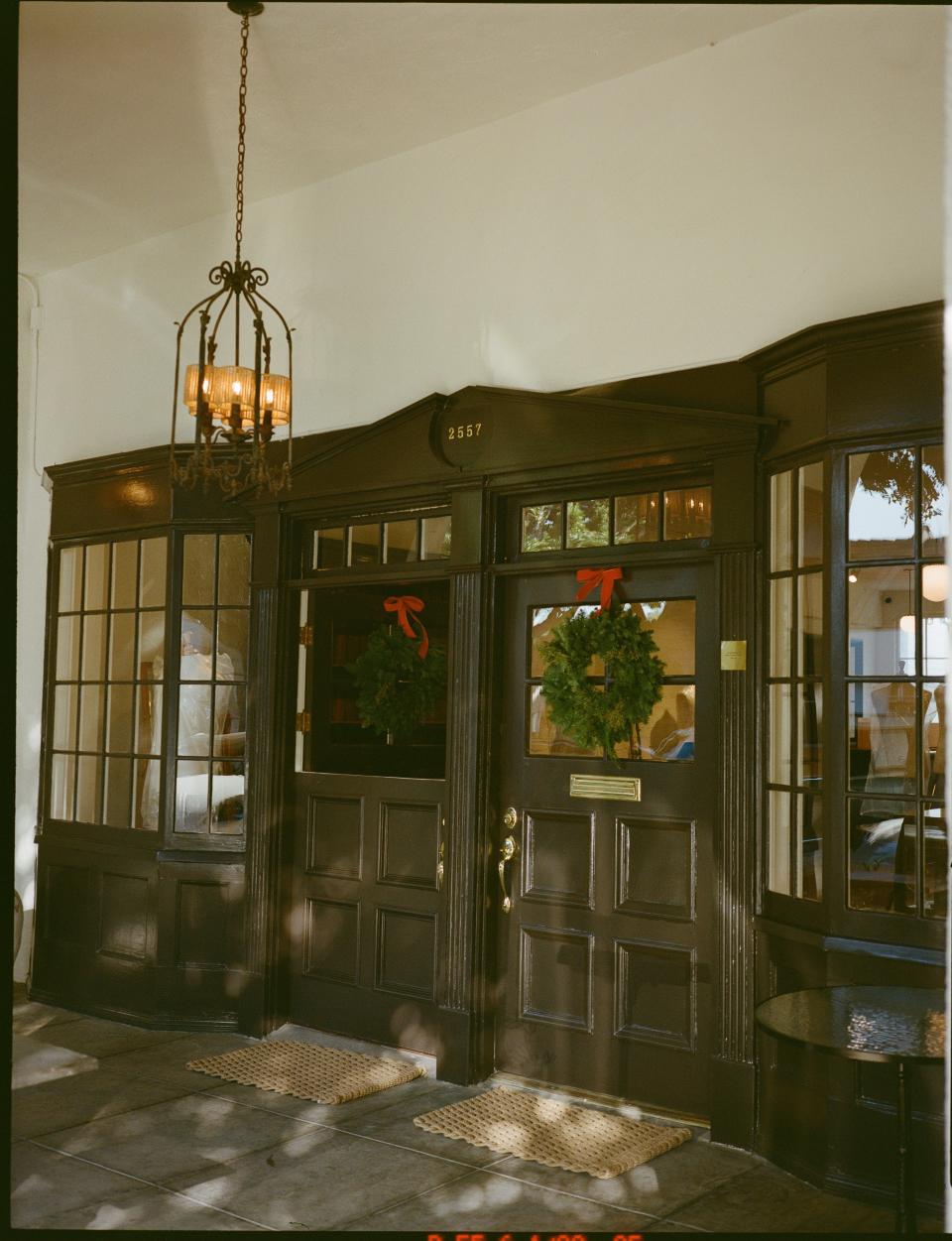
In most stores, Baroncini notes, “You have racks and you have folding tables, and you have these thousand employees that walk around dressed up. I don't have that.” Instead, from more or less the beginning, he’s had the humble mannequin. This was not merely a financial consideration. “My biggest concern when I started the brand was to link the brand too much to myself,” he says. “That's why I didn't call it David Baroncini Cashmere. Because I always, if you're not into Italian dudes, I'm fucked. The whole model crumbles.”
Still, this particular Italian dude has an appeal that’s not hard to notice. Baroncini, 35, is effusive, quick to offer a hug, perhaps even faster to shed a tear, dedicated to his wife and daughter and dogs and garageful of impractical cars. (The daily driver is a real mamma mia-grade Land Rover Defender.) He speaks with his hands. He cooks, often. He is given to winding tangents about concepts like empathy, masculinity, and authenticity. He is almost unfathomably Italian.
He comes from a village near Catania, the Sicilian city at the foot of Mount Etna. (He shares with amusement that Catania has nearly twice as many citizens as Pasadena.) Growing up he thought he’d play professional soccer. Instead regular jobs followed: he sold phone contracts door to door, worked as a lighting engineer, installed air conditioners. He spent six months on the Italian version of Big Brother (called, amusingly, Grande Fratello), but opted out of the reality star-to-nightclub apparance pipeline and took a job with Dutch retailer SuitSupply, using his “very broken” English to sell suits in the Netherlands. If he wasn’t fluent in English, at least he seemed to have the universal gift of sales.
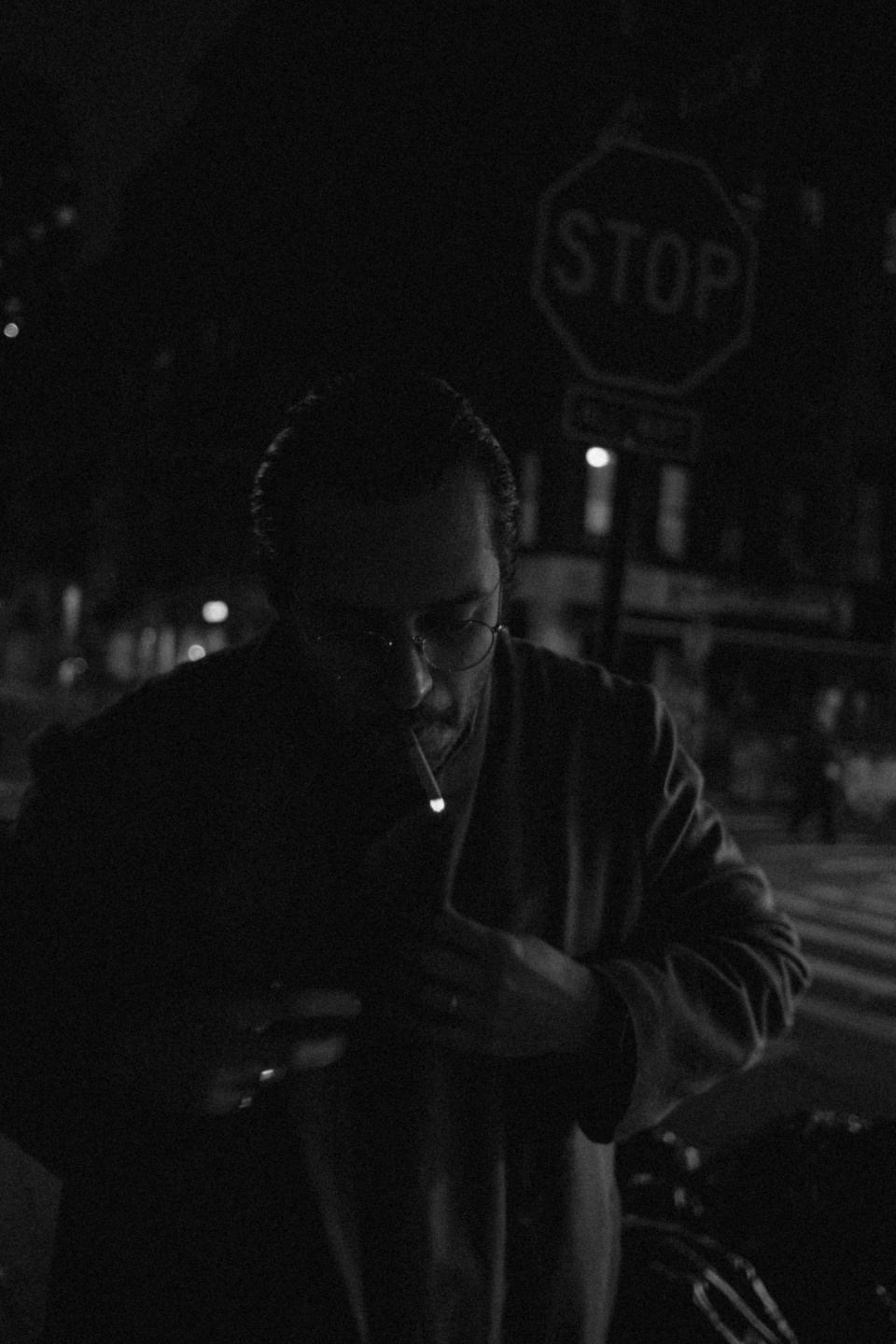
Not long after that, two things happened: he moved to New York with SuitSupply, where he met Pia; and he took a job with Italian tailoring titan (and aspirational lifestyle king) Brunello Cucinelli. Cucinelli’s operation is famously based in Solomeo, Italy, and Baroncini spent a few years there before moving to California with Pia and starting up Ghiaia out of their garage in Venice. Eventually they’d marry, move into Pia’s childhood home (hence the Pasadena of it all), and have a baby daughter.
He started with a tightly curated range of sweaters—crewneck, V-neck, quarter-zip, full zip, and shawl collar, available in multiple fabrics and colors. Baroncini styled the sweaters on old-fashioned mannequins, supplementing them with vintage pulls from his own closet. “I was using, clearly, my clothes, putting my mannequin in different corners of the house,” he recalls.
The mannequins told a story. This one’s heading to the beach. That one’s got a big meeting today. This one’s just back from a bagel run. That one’s got a collection of vintage cars. They allowed for a certain degree of projection, too. Sometimes putting clothes on a model only underscores the difference between you, regular joe, and the handsome hunk paid to make clothes look good. Putting them on a faceless mannequin allowed customers to transport themselves into the good life it seemed to represent. “My mannequin can be any guy,” Baroncini says.
In one way, the mannequins were sometimes too effective. Customers started writing in, asking if they could buy, say, the pants from one outfit. “I don’t sell pants,” Baroncini would reply. What about the shoes? “I don’t sell shoes. If you want, I can tell you where I bought them, but that’s not the point.”
At first this made him mad: why weren’t people paying attention to the sweaters? His wife helped him understand: "No, that's data. They ask you so much about this pant, let's make a better pant. They ask you so much about the shoe? Make a better shoe.” With time, the brand grew; Ghiaia now sells just about anything Baroncini can think to put on a mannequin. “Pretty much at this point, I can dress the mannequins with all Ghiaia clothes,” he says. “Ghiaia shoes, Ghiaia socks, Ghiaia pants, Ghiaia shirt, Ghiaia sweater.”
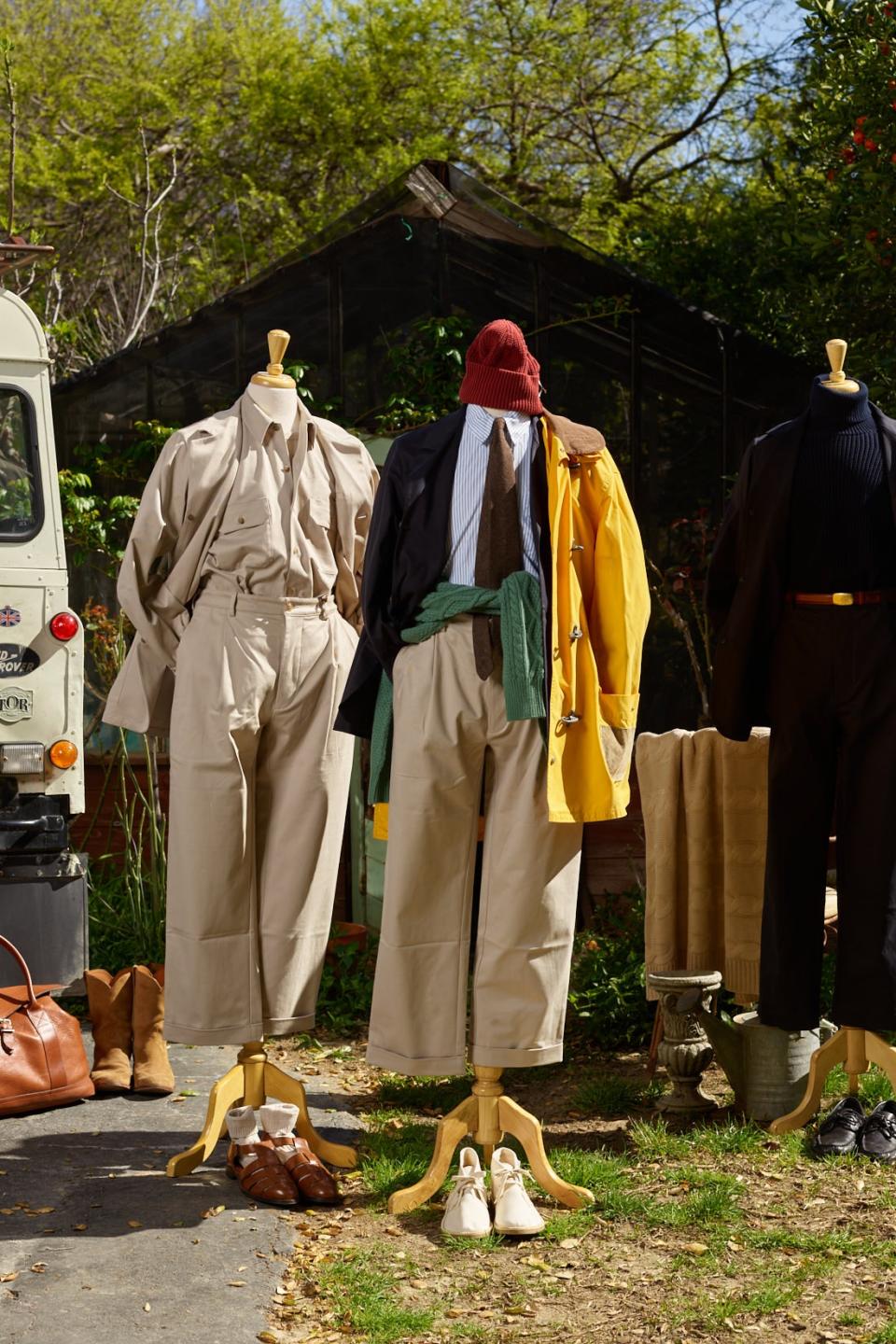
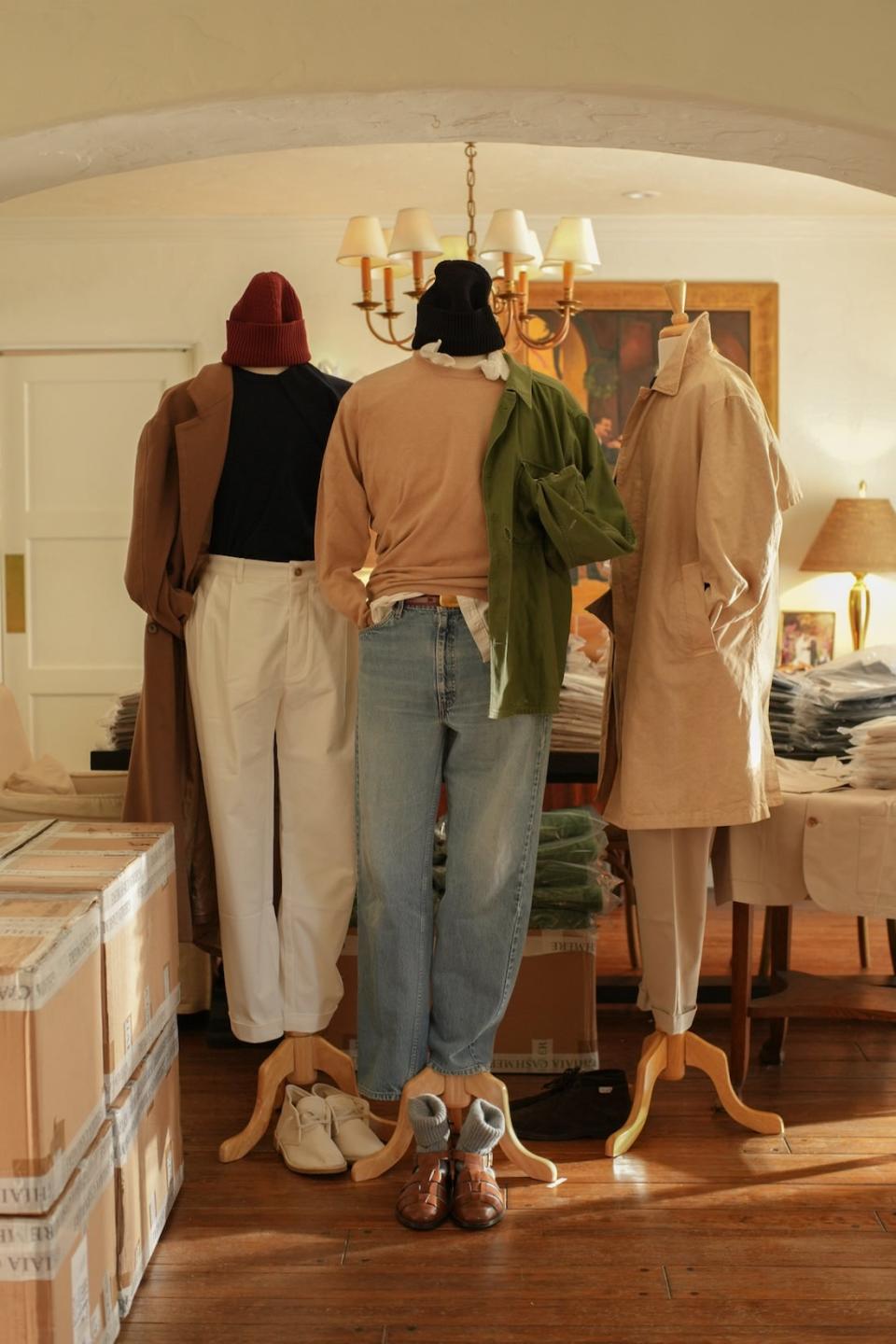
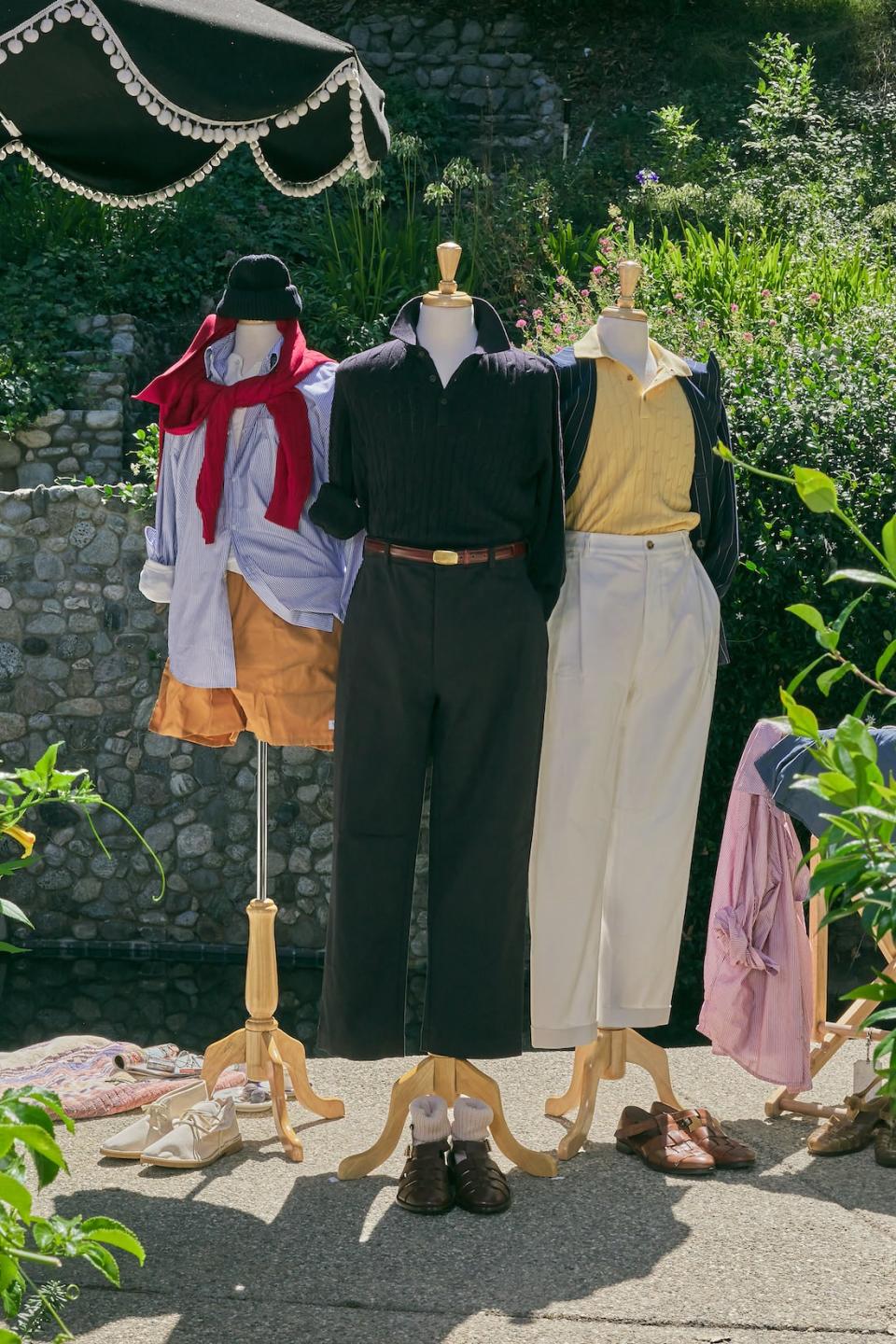
A few days after we meet at his store, Baroncini invites me over to his place for lunch. He’s got a tomato sauce going on the stove, and boils a pot of water to make us a pasta lunch. He pours us tumblers of orange wine and we head out to the backyard to eat.
He lives here, in his wife’s childhood home, with Pia and their daughter and Pia’s mother. Husband and wife are deeply involved in each other’s professional lives: Pia serves as Ghiaia’s CMO, while Baroncini plays the role of doting, loving, impossibly big-feelinged Italian husband on Pia’s Instagram. Together, they import olive oil from Italy.
They have distinct but overlapping followings: earlier this year I was startled to hear Davide’s voice coming out of my girlfriend’s phone. “Pia gf/Davide bf,” one colleague joked to me when I shared what had happened. Indeed, the couple are an object lesson in the different ways men and women use social media. Pia’s followers, I gather, want to see inside her life. Baroncini’s followers mostly want to see his cars.
Baroncini recognizes that no brand can thrive on sweaters alone, even if that’s how he’d prefer it. “Of course, my personal component is crucial. I'm not going to lie to you,” he says. “I think I'm selling more that than the actual product: the impractical car, the dog, the Pasadena life.”
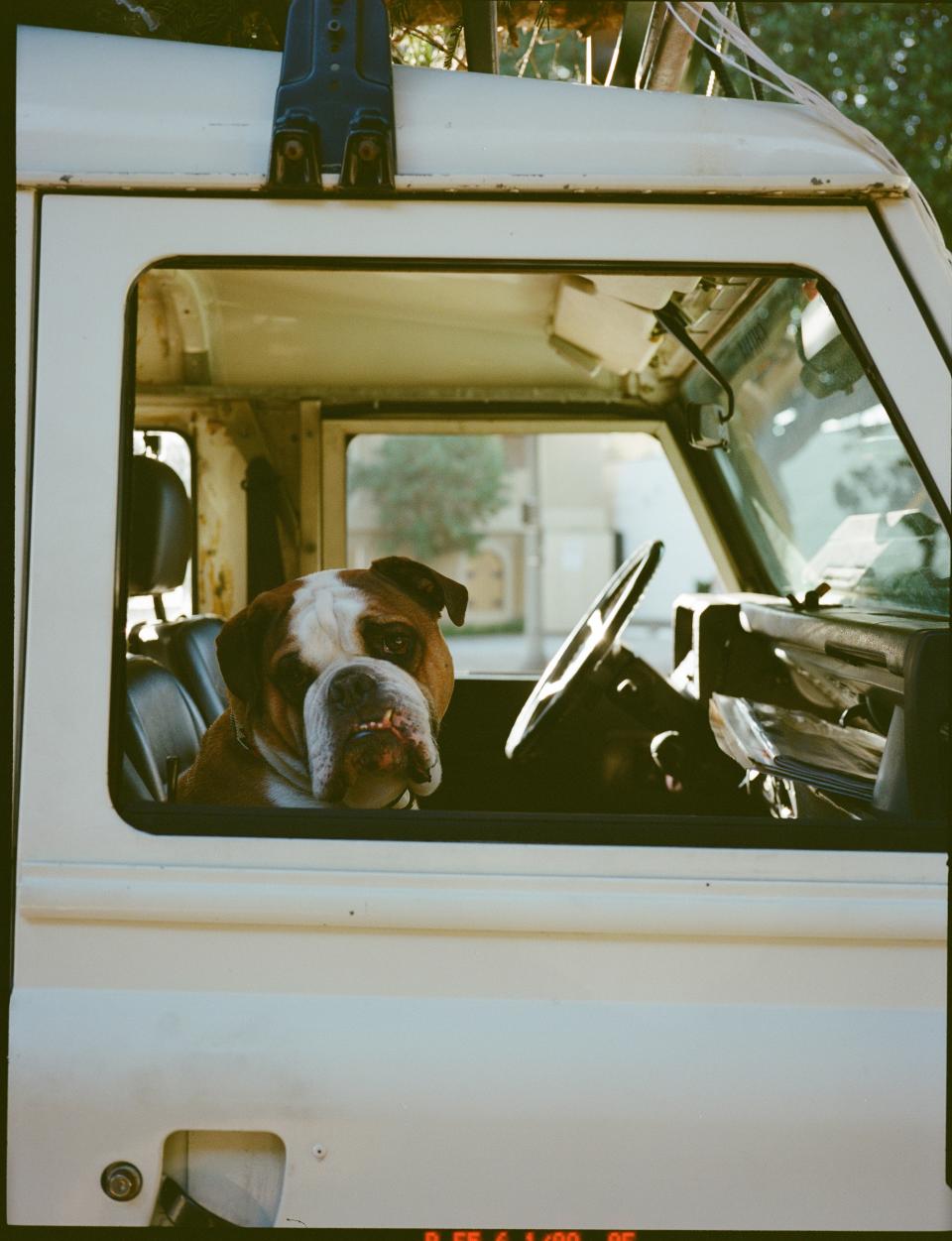
The new shop will allow him to do both: to sell his goods, and to keep building the world he’d like them to inhabit. It’s big—nearly quadruple the size of his first spot—and lovingly appointed. When I visit in late fall, the hard work is done—the floors stripped and stained terracotta red, the vitrines installed, the sign hung out front. There’s a porch, and a fireplace, a bar and Dutch doors he’s leaning out of when I arrive. He’s installing a little outdoor kitchen on the back patio—to whip up a quick pasta lunch, or to throw more ambitious dinners. He shares his plans to procure and install a “fuck-you, 14-foot Christmas tree” before opening. He expects to be here a lot. “It feels like my house,” he says. “I can park the car in the front, so you'll see where I am at.”
Things are good. The business is growing. He’s looking to hire a COO—the sort of person who can worry about calendars, logistics, finances, all the things he’s juggled for the last five years, “so I can do my things,” he says. “I can serve people coffee, I can design stupid shit, and drive impractical vehicles around the city. That's pretty much my role in the company.”
To do what he does, he told me when we first met, doesn’t take much more than hard work and understanding. Still, it’s worth doing, and worth doing well. “I barely finished school. I don't consider myself by any means a genius. I'm, actually, an idiot because making cashmere sweater in southern California is very hard,” he says, laying the self-deprecation on thick. “But I like to involve people in what I do. I think that is very valuable. That's why I believe in retail. That's why I believe in brick and mortar. That's why I believe in brands that stand for that.”
Originally Appeared on GQ

